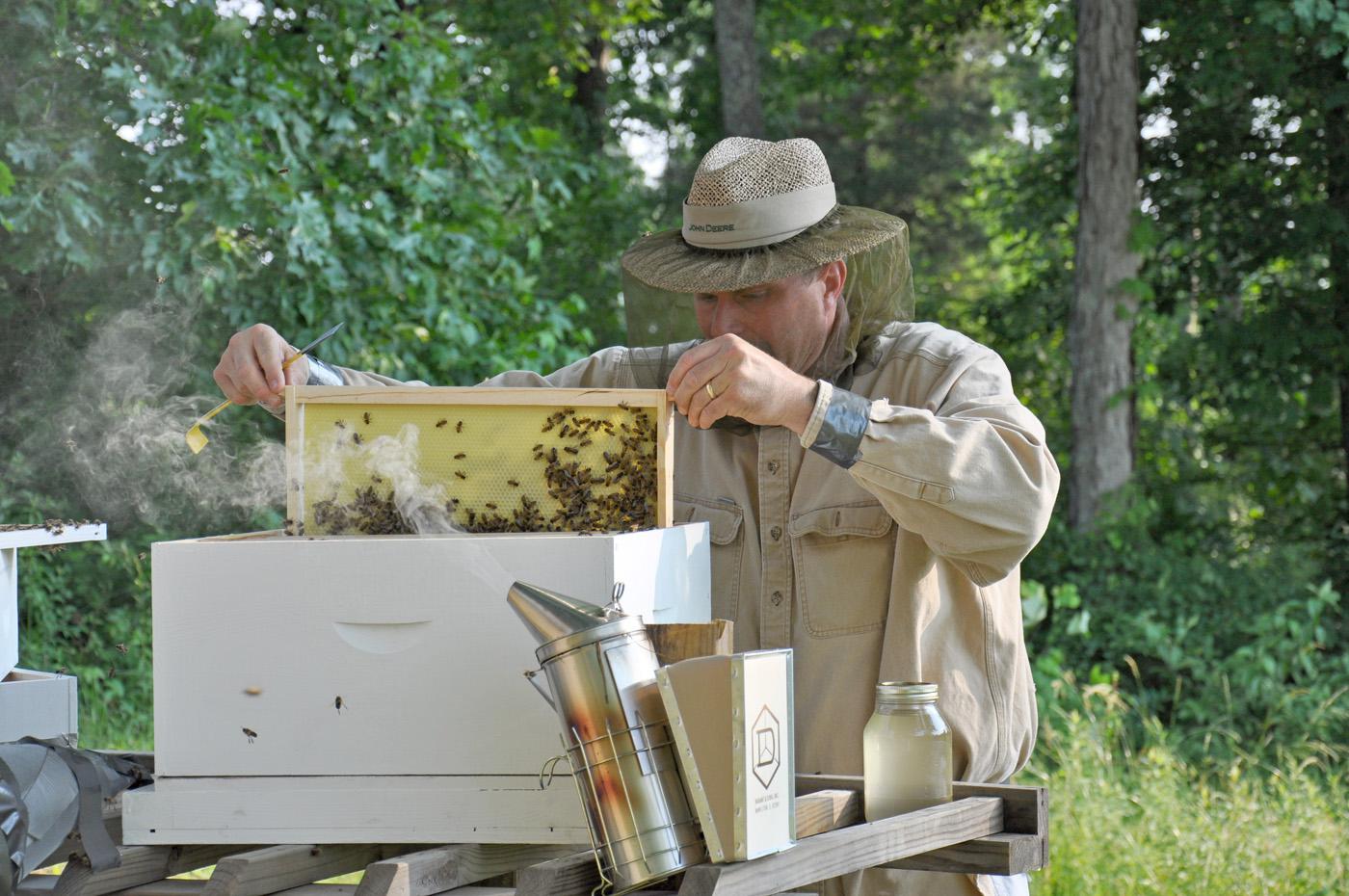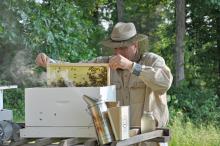Information Possibly Outdated
The information presented on this page was originally released on June 24, 2010. It may not be outdated, but please search our site for more current information. If you plan to quote or reference this information in a publication, please check with the Extension specialist or author before proceeding.
Bees provide sweet success for keepers
By Karen Templeton
MSU Ag Communications
MISSISSIPPI STATE – Mississippians are finding that beekeeping can be a challenging hobby, a profitable business or a good way to learn more about one of nature’s most interesting insects.
There are close to 1,000 people in Mississippi who keep bees for profit or for hobby, and the number is steadily growing.
“We’ve been teaching beekeeping short courses across the state and have had close to 100 or more in some of the classes,” said Clarence Collison, head of Mississippi State University’s entomology and plant pathology department. “Interest in beekeeping seems to ebb and flow. Right now, we are seeing a sharp increase in interest.”
Collison said people’s enthusiasm about beekeeping may stem from a widespread interest in sustainable food systems. Bees provide a popular food and also help farmers with their crops.
“Bees provide honey, a quality natural ingredient, that many people like to keep in the kitchen,” he said. “There are many experts who claim that eating locally made honey can help with allergies. The theory is that when you consume raw honey, you also get the wind-borne pollen the bees put into the honey, which over time can help build a resistance to seasonal allergies. Some allergists even recommend eating local honey for this reason.”
Collison said bees are also important pollinators of crops, and many farmers find that bees help improve their produce-growing operations. Many U.S.-grown crops rely on an introduced pollinator, like the honey bee, to continue to produce fruits and vegetables.
“Bees aren’t just an asset to commercial growers, but they also help your average gardener,” he said. “Keeping bees on your property can really enhance a landscape and garden.”
Collison said getting started is the most expensive part of beekeeping. Those interested in keeping the insects will have to purchase hives and equipment.
“Equipment needs vary with the size of the operation and the number of colonies,” Collison said. “The basic equipment needed are the components of the hive, protective gear, smoker, hive tool and other tools for handling the honey.”
Mark Lewis of Lowndes County is new to beekeeping and said getting started is time consuming, but learning about bees and their care has is interesting.
“I have enjoyed meeting all of the people involved in beekeeping and appreciate how generous they are with their time, tips and insight,” he said. “There are as many ways to keep bees as there are beekeepers.”
Lewis plans on keeping enough hives to one day sell honey, but for now, he is still learning about the care and work the bees require.
“It is a little more work than I initially thought. It’s not like you can just put the bees out there and let them do their thing,” he said. “I think if you are doing this as a hobby, you can be a little less involved. To make high-quality products to sell, however, you need to be more active in your monitoring and involvement.”
Vanik Eaddy of Oktibbeha County has been keeping bees for 10 years and finds the work hard but rewarding. He started keeping bees after his son encouraged him to get into beekeeping as a hobby. Today, Eaddy sells fresh honey to retailers in West Point, Columbus and Starkville.
“The primary work is done between March and October. The challenge there is doing work during the hot summer months,” he said. “It is also a significant investment because we are producing a food product and working with live animals.”
Collison said many retirees sign up for beekeeping workshops and find beekeeping to be an enjoyable pastime.
“Those looking to sell honey need to keep about 30 to 50 hives, and that can create a lot of work,” he said. “But someone looking to just learn about bees and keep them around as a hobby will only purchase a few hives. It is only as much work as you want to make it.”
One aspect of beekeeping is building a relationship with the bees, Collison said.
“They are fascinating creatures and teach us so much about the ecological environment,” he said. “You don’t have to make a profit on the products they produce to reap the rewards of beekeeping.”




